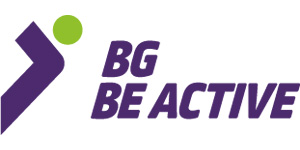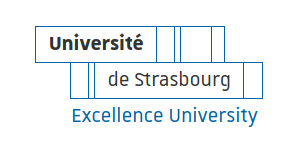We should be celebrating people being more active every day
03/03/2020
Comment by physical literacy expert Nigel Green
Two years ago I was invited to introduce Indian teachers to the concept of physical literacy and make it a focus in their physical education practices. I have returned five times in connection with this work and have found that traditional notions of education and physical activity are difficult to change. PE teachers have their own personal experiences so when it comes to adopting a new concept with a different philosophy it is essential to take time to explain it in detail and provide practical examples of how their practice could change for the better.
However, one recent example stood out underlining that we, as physical literacy promoters, have some work ahead of us to make the concept easier to grasp internationally. A colleague in India told me that Government officials suggested to him that if physical literacy is to be of equal importance to Maths and English then we should hold state competitions in it as we do in the other two subjects. I suggested that the Government might be better celebrating schools whose students are physically active every day rather than trying to find out who is the best student. We should celebrate and appreciate regular participation in physical activities we enjoy.
A celebration of everyday people being physically active
In ISCA’s EU-supported Physical Literacy for Life project, in which my organisation, International Physical Literacy Association (IPLA), is a partner, our consortium European and Australian partners are aiming to communicate a shared understanding of physical literacy effectively across borders and in different languages. One idea is simply to profile how physical literacy enriches the lives of everyday people. Below I present some simple example profiles:
Molly (Aged 2 ½) plays in the park on the swings and slides, is taken swimming and to Tumble Tots (a gymnastic type activity), loves to dance to music with her dad, is learning to ride a bike and scooter. With the support of her parents and extended family, Molly is developing her experience in a wide range of activity environments and is enriching her movement repertoire, which will provide her with the basis for her engagement in physical activities in the future. We all need support and encouragement to engage in physical activities and enrich our movement repertoire. The wider our experiences at an earlier age, the more opportunities there are for us to develop our physical literacy in different environments.
Edie (Aged 7) takes part in PE lessons in school, once a week, attends two swimming groups – one for life saving and one for competitive swimming, goes to a tennis coaching session every Sunday morning and a gymnastics class on a Saturday afternoon. Edie also goes to the gym with her mom where she does fun fitness classes with children of her own age whilst her mom does her exercise classes. Edie also enjoys going on cycle rides and walks in the countryside. In the structured sessions that Edie’s coaches provide, she is challenged at the right level so that she is developing her confidence, physical competence, knowledge and understanding. This provides her with the motivation to keep going to the classes.
Ethan (Aged 16) does PE three times a week, taking part in a wide range of different physical activities. He plays basketball for the school team so he trains twice a week for this and plays matches when they are organised. Ethan enjoys playing football at the weekend with his friends and is now going to the gym to improve his fitness. Enjoyment and being successful in a range of physical activities at school will motivate people to choose to engage in activities they enjoy in their leisure time.
Amy (Aged 33) manages to fit in three gym sessions a week where she does a range of different exercise classes. She plays netball for a team once a week and is currently training for a 5km fun run. Amy enjoys taking part in a range of activities such as mountain walking and cycling when she has time, which is influenced by her work and family commitments. Fitting physical activity into our lifestyle is a challenge as we put pressure on ourselves, to work hard and also run a family. It is important to recognise that making time for physical activity will contribute to our holistic wellbeing.
Nigel (Aged 61) tries to do some form of physical activity every day. Being retired, Nigel now has more time to go to the gym, along with running and cycling in the local countryside. He also enjoys the social engagement when playing golf, table tennis and walking in the mountains. As we get older we often have more time to engage in physical activity. We can draw from our experiences and engage in physical activities we enjoy or take on new challenges, as long as we have the confidence, physical competence, knowledge and understanding.
Roland (Aged 94) tries to be physically active each day in his home. He attends a group balance class and a chair fit class twice a week and on the other days he does simple mobility and strength exercises in the house. He stopped playing table tennis and dancing a couple of years ago as his balance has deteriorated, but he appreciates the importance of keeping mobile and active. As we start to find some activities too much of a challenge, we need to look for other activities that keep us engaged and maintain our holistic health.













